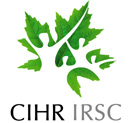The University of British Columbia is trying to highlight the fact Canada falls behind many other developed countries in helping people with rare diseases.
Sometimes the government pays for an orphan drug, sometimes it doesn’t. It depends on which province you live in. With a finite budget, sometimes the province has to say no.
“These drugs are going to get more and more expensive. Technology is also making them more expensive. If that’s the case, how is the Canadian health care system going to cope with that?” Peter Klein, a UBC journalism professor, asked.
It is one of the many questions addressed in Million Dollar Med$, a video project produced by students at the UBC Graduate School of Journalism in partnership with UBC’s Faculty of Pharmaceutical Sciences.








